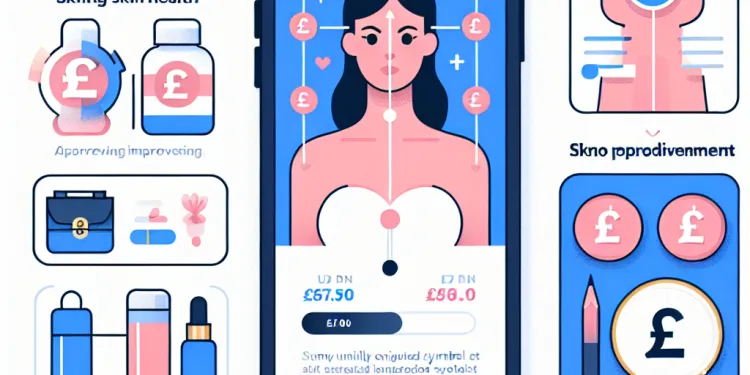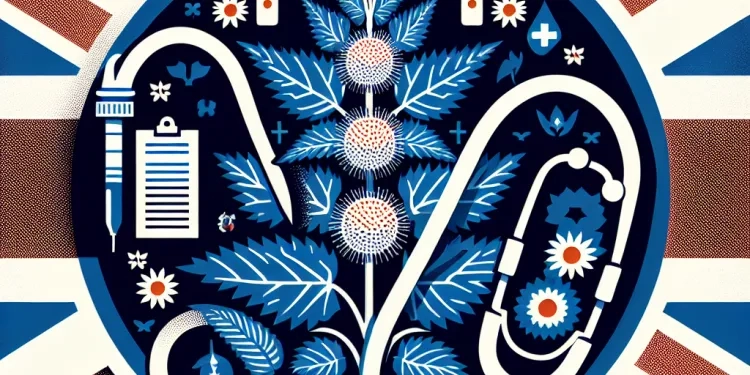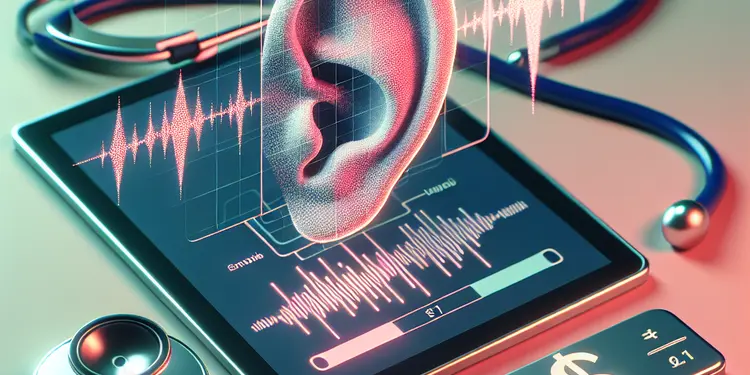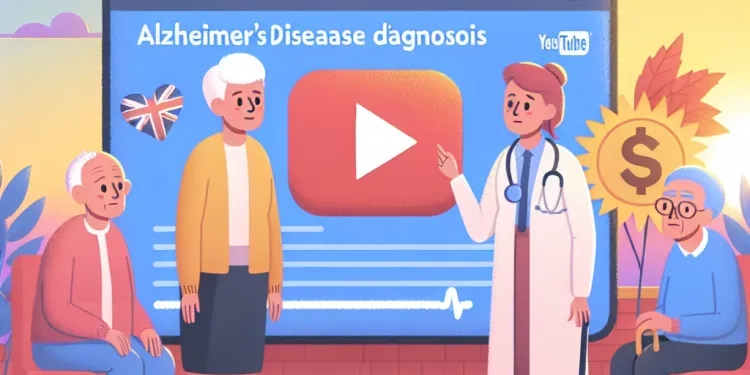
Find Help
More Items From Ergsy search
-

How can eczema be diagnosed?
Relevance: 100%
-

Is eczema contagious?
Relevance: 70%
-

Is there a cure for eczema?
Relevance: 69%
-

What is eczema? General Information
Relevance: 68%
-

What are the main types of eczema?
Relevance: 67%
-

What causes eczema?
Relevance: 67%
-

Can eczema improve with age?
Relevance: 66%
-

Managing and treating your child's eczema
Relevance: 65%
-

Who is at risk of developing eczema?
Relevance: 64%
-

Can diet affect eczema?
Relevance: 64%
-

What treatments are available for eczema?
Relevance: 63%
-

Eczema - Your child's appointment | Dermatology | Paediatrics
Relevance: 63%
-

Are there any home remedies for eczema?
Relevance: 63%
-

Factors that trigger eczema in your child
Relevance: 61%
-

How can I prevent eczema flare-ups?
Relevance: 60%
-

Can dust mites cause asthma and eczema?
Relevance: 58%
-

What are common symptoms of eczema?
Relevance: 46%
-

How does weather affect eczema?
Relevance: 44%
-

How is a nut allergy diagnosed?
Relevance: 43%
-

How is psoriasis diagnosed?
Relevance: 43%
-

How is scabies diagnosed?
Relevance: 42%
-

How is nettle rash diagnosed?
Relevance: 40%
-

How is gonorrhoea diagnosed?
Relevance: 39%
-

How is SAD diagnosed?
Relevance: 39%
-

How is autism diagnosed?
Relevance: 39%
-

How is shingles diagnosed?
Relevance: 39%
-

How is meningitis diagnosed?
Relevance: 39%
-

How is whiplash diagnosed?
Relevance: 39%
-

How is tinnitus diagnosed?
Relevance: 38%
-

How is hypotony diagnosed?
Relevance: 38%
-

How is ADHD diagnosed?
Relevance: 38%
-

How is asthma diagnosed?
Relevance: 38%
-

How is thrombosis diagnosed?
Relevance: 38%
-

How is dementia diagnosed?
Relevance: 38%
-

How is a concussion diagnosed?
Relevance: 38%
-

How is HIV diagnosed?
Relevance: 38%
-

How is a concussion diagnosed?
Relevance: 37%
-

How is Alzheimer's disease diagnosed?
Relevance: 37%
-

How is Rubella diagnosed?
Relevance: 37%
-

How is tooth decay diagnosed?
Relevance: 37%
Understanding Eczema Diagnosis
Eczema, also known as atopic dermatitis, is a common inflammatory skin condition that causes itching, redness, and irritation. Diagnosing eczema involves a comprehensive approach by healthcare professionals to differentiate it from other similar skin conditions.
Initial Consultation and Medical History
The diagnosis of eczema typically begins with an initial consultation with a general practitioner (GP) or a dermatologist. During this consultation, the healthcare provider will inquire about the patient's medical history, family history of eczema or other atopic diseases such as asthma or hay fever, and the onset and pattern of symptoms. It is crucial to discuss environmental and lifestyle factors that may contribute to flare-ups. This information helps the doctor form a clearer picture of the condition and its potential triggers.
Physical Examination
Following the medical history, the doctor conducts a physical examination of the skin. The examination focuses on typical areas affected by eczema, such as the face, hands, feet, and the insides of the elbows and knees. The doctor will look for signs of inflammation, redness, dry patches, and any evidence of chronic scratching, which might lead to skin thickening or other changes. The distribution and appearance of rashes are key components in differentiating eczema from other dermatological conditions.
Patch Testing and Allergy Tests
For some patients, especially those with severe or atypical eczema, further tests may be needed. Patch testing is a common method used to identify specific allergens that could be causing the skin reaction. Small amounts of common allergens are applied to the skin to observe any reactions. Allergy tests, such as blood tests or skin prick tests, might be conducted to identify broader allergic sensitivities that may exacerbate eczema symptoms.
Skin Biopsy and Laboratory Tests
In rare cases, a skin biopsy might be performed to rule out other skin disorders with similar symptoms. A small skin sample is taken and examined under a microscope. This can help exclude other conditions like psoriasis or skin infections. Laboratory tests are not typically needed for a basic eczema diagnosis but can be critical for ruling out other conditions.
Diagnosis of Infant Eczema
Diagnosing eczema in infants involves similar steps. However, it can be challenging due to the sensitivity of infant skin and the potential for misinterpreting common conditions like cradle cap. GPs may be more conservative with testing in infants, focusing on observable symptoms and parental reports.
Conclusion
Accurately diagnosing eczema is essential to manage and treat the condition effectively. By understanding the patient’s history, examining the skin, and potentially conducting additional tests, healthcare providers can develop a customised treatment plan. If you suspect you have eczema, consulting a healthcare professional in the UK is a crucial step towards effective management.
Understanding Eczema Diagnosis
Eczema, also called atopic dermatitis, is a skin problem. It makes your skin itchy, red, and sore. Doctors work hard to make sure eczema is not another kind of skin problem.
First Visit and Health History
To find out if you have eczema, you first see a doctor like a GP or skin doctor (dermatologist). The doctor will ask about your health, if your family has eczema, asthma, or hay fever, and when your symptoms started. They will also ask what makes your skin worse, like certain soaps or foods. This helps the doctor understand your eczema better.
Looking at the Skin
Then, the doctor checks your skin. They look at places like your face, hands, feet, inside your elbows, and behind your knees. They check for redness, dry skin, and signs of scratching. This helps them see if it's eczema or another skin issue.
Testing for Allergies
Sometimes, more tests are needed. Patch tests are when tiny bits of things that might cause allergies are put on your skin. The doctor checks if your skin reacts. There are other tests too, like blood tests or prick tests, to see if you have allergies that make eczema worse.
Skin Sample Tests
Rarely, doctors take a tiny sample of your skin to look at under a microscope. This helps them make sure it’s not other problems like psoriasis. Lab tests are not common for eczema but help check for other issues.
Eczema in Babies
Checking eczema in babies is similar but can be tricky. Babies have delicate skin, and some problems like cradle cap can be confusing. Doctors are careful with tests on babies. They mainly look at the baby's skin and ask parents about what they see.
Conclusion
Finding out if you have eczema is important to help you feel better. Doctors learn about your health, look at your skin, and might do extra tests. This helps them make a plan just for you. If you think you have eczema, seeing a doctor in the UK is a good first step for getting help.
Helpful Tips: Keep a diary of your skin problems. Write down what you eat and use on your skin. This helps the doctor know what might make the eczema worse.
Frequently Asked Questions
What is eczema?
Eczema is a condition that makes the skin red, inflamed, and itchy.
How is eczema diagnosed?
Eczema is primarily diagnosed through a physical examination of the skin and by discussing symptoms with a healthcare provider.
Can a biopsy be used to diagnose eczema?
In rare cases, a biopsy of the skin may be performed to differentiate eczema from other skin conditions.
Do you need blood tests to diagnose eczema?
Blood tests are not used to diagnose eczema, but they may help identify related conditions or allergies.
Are there specific tests for eczema?
There are no specific tests for eczema, diagnosis is usually based on skin examination and patient history.
Can allergy testing help diagnose eczema?
Allergy testing can identify triggers that may cause or worsen eczema, but it is not used for diagnosis.
What signs do doctors look for to diagnose eczema?
Doctors look for signs such as redness, swelling, itching, and rashes on the skin.
Can eczema be self-diagnosed?
While symptoms can suggest eczema, a professional diagnosis is important to rule out other conditions.
Is a dermatologist needed to diagnose eczema?
While a primary care doctor can diagnose eczema, a dermatologist can provide a more detailed evaluation if needed.
Are there different types of eczema that need separate diagnoses?
Yes, there are several types of eczema, such as atopic dermatitis and contact dermatitis, each with specific diagnostic criteria.
Can symptoms like itching alone indicate eczema?
Itching is a common symptom, but diagnosis requires other signs such as rash appearance and location.
How important is patient history in diagnosing eczema?
Patient history is crucial, as it can reveal patterns, triggers, and family history of eczema or allergies.
What role do visual examinations play in diagnosing eczema?
Visual examinations are essential for identifying characteristic features of eczema on the skin.
Can eczema be diagnosed just by looking at affected skin areas?
Yes, often doctors can diagnose eczema through a thorough examination of affected skin areas.
Can the location of a rash help diagnose eczema?
Yes, the location, along with appearance, helps differentiate eczema from other skin conditions.
Is there an age group more commonly diagnosed with eczema?
Eczema is often diagnosed in children, but it can occur at any age.
How does family history play a role in eczema diagnosis?
A family history of eczema or allergies can increase the likelihood and help support the diagnosis.
Does climate or environment affect the diagnosis of eczema?
Environmental factors can trigger symptoms and may be considered during diagnosis.
Can eczema be mistaken for other skin conditions?
Yes, conditions like psoriasis or dermatitis can have similar symptoms, requiring careful diagnosis.
How often should one consult a doctor for eczema symptoms?
If symptoms persist or worsen, it’s important to consult a doctor for proper diagnosis and treatment.
What is eczema?
Eczema is a skin problem. It can make your skin red, itchy, and dry. People with eczema might have patches on their skin that feel rough.
To help with eczema, you can:
- Use special creams to make your skin feel better.
- Try not to scratch your skin.
- Ask a doctor or a nurse for help.
Eczema makes your skin red, swollen, and itchy.
How do doctors know if you have eczema?
Doctors look at your skin and ask questions. They may ask about itching, redness, or if someone else in your family has eczema. You might need to visit a doctor who knows a lot about skin.
Doctors find out if you have eczema by looking at your skin and talking to you about how you feel.
Can a doctor use a test to find out if someone has eczema?
Sometimes, to tell if someone has eczema or another skin problem, doctors might do a test called a biopsy. This means they take a tiny piece of skin to look at it very closely.
Do you need blood tests to find out if you have eczema?
Doctors do not use blood tests to find out if you have eczema. But, blood tests can help find other problems or allergies that go with eczema.
Can doctors test for eczema?
Yes, doctors can check if you have eczema.
They might look at your skin and ask questions about signs like itchiness or rashes.
Sometimes, doctors might do different tests to help decide if it's eczema.
Reading Tip: Use large text and keep sentences short.
Doctors look at the skin and ask questions to tell if someone has eczema. There are no special tests.
Can allergy tests help find out if someone has eczema?
Allergy tests can help find things that make eczema worse, but they do not tell you if you have eczema.
How do doctors know if someone has eczema?
Doctors check the skin for signs like red spots, swelling, itching, and rashes.
Can I tell if I have eczema by myself?
Sometimes, signs on your skin can look like eczema, but it’s important to see a doctor to make sure it’s not something else.
Do you need a skin doctor to find out if you have eczema?
Your regular doctor can tell you if you have eczema. But if you need more help, a skin doctor, called a dermatologist, can take a closer look.
Are there different kinds of eczema that need different checks?
Yes, there are different types of eczema. Some types are called atopic dermatitis and contact dermatitis. Each type has special signs to look for.
Can itching mean you have eczema?
Itching is something that happens a lot. But to find out what is wrong, doctors need to see other things too. They look for things like what the rash looks like and where it is on the body.
Why is a patient's history important for diagnosing eczema?
Understanding a patient's past helps doctors find out if someone has eczema. Knowing what has happened before can show important things like:
- When the skin problems started.
- If family members have eczema.
- What things make the skin worse or better.
Doctors use this information to help make the right diagnosis. Tools like simple picture charts or talking with a patient support person can help explain things better.
Knowing your health history is very important. It can show when your skin gets itchy and why. It might also show if other people in your family have eczema or allergies.
How do doctors use looking to find out if someone has eczema?
Looking at the skin helps doctors find signs of eczema.
Can a doctor tell if you have eczema by looking at your skin?
Yes, doctors can usually tell if someone has eczema by looking at the skin.
Can where a rash is help find out if it is eczema?
Yes, where it is on your body, and how it looks, can help tell if it is eczema and not something else.
Who gets eczema the most?
Eczema is a skin problem. Many kids get it, but grown-ups can have it too.
How can family history help doctors know if someone has eczema?
If other people in your family have had eczema or allergies, it is more likely that you might have it too. This can help doctors know if you have eczema.
Can weather or surroundings change eczema?
Things in the environment can make symptoms start. It might be important to think about these things when trying to find out what's wrong.
Can eczema look like other skin problems?
Yes, skin problems like psoriasis and dermatitis can look the same. A doctor needs to check carefully to see which one it is.
How often should you see a doctor for eczema?
If you have itchy, red skin, it might be eczema. Talk to a doctor if:
- You don't know what to do to help your skin.
- Your skin is not getting better after using cream or medicine.
- Your skin looks infected (red, sticky, or swollen).
- It is bothering you or stopping you from having fun.
If you are not sure, ask for help. You can ask someone you trust to go to the doctor with you. They can help you explain your symptoms.
If you still feel sick or get worse, you should see a doctor. They can find out what is wrong and help you get better.
Useful Links
This website offers general information and is not a substitute for professional advice.
Always seek guidance from qualified professionals.
If you have any medical concerns or need urgent help, contact a healthcare professional or emergency services immediately.
Some of this content was generated with AI assistance. We’ve done our best to keep it accurate, helpful, and human-friendly.
- Ergsy carfully checks the information in the videos we provide here.
- Videos shown by Youtube after a video has completed, have NOT been reviewed by ERGSY.
- To view, click the arrow in centre of video.
- Most of the videos you find here will have subtitles and/or closed captions available.
- You may need to turn these on, and choose your preferred language.
- Go to the video you'd like to watch.
- If closed captions (CC) are available, settings will be visible on the bottom right of the video player.
- To turn on Captions, click settings .
- To turn off Captions, click settings again.
More Items From Ergsy search
-

How can eczema be diagnosed?
Relevance: 100%
-

Is eczema contagious?
Relevance: 70%
-

Is there a cure for eczema?
Relevance: 69%
-

What is eczema? General Information
Relevance: 68%
-

What are the main types of eczema?
Relevance: 67%
-

What causes eczema?
Relevance: 67%
-

Can eczema improve with age?
Relevance: 66%
-

Managing and treating your child's eczema
Relevance: 65%
-

Who is at risk of developing eczema?
Relevance: 64%
-

Can diet affect eczema?
Relevance: 64%
-

What treatments are available for eczema?
Relevance: 63%
-

Eczema - Your child's appointment | Dermatology | Paediatrics
Relevance: 63%
-

Are there any home remedies for eczema?
Relevance: 63%
-

Factors that trigger eczema in your child
Relevance: 61%
-

How can I prevent eczema flare-ups?
Relevance: 60%
-

Can dust mites cause asthma and eczema?
Relevance: 58%
-

What are common symptoms of eczema?
Relevance: 46%
-

How does weather affect eczema?
Relevance: 44%
-

How is a nut allergy diagnosed?
Relevance: 43%
-

How is psoriasis diagnosed?
Relevance: 43%
-

How is scabies diagnosed?
Relevance: 42%
-

How is nettle rash diagnosed?
Relevance: 40%
-

How is gonorrhoea diagnosed?
Relevance: 39%
-

How is SAD diagnosed?
Relevance: 39%
-

How is autism diagnosed?
Relevance: 39%
-

How is shingles diagnosed?
Relevance: 39%
-

How is meningitis diagnosed?
Relevance: 39%
-

How is whiplash diagnosed?
Relevance: 39%
-

How is tinnitus diagnosed?
Relevance: 38%
-

How is hypotony diagnosed?
Relevance: 38%
-

How is ADHD diagnosed?
Relevance: 38%
-

How is asthma diagnosed?
Relevance: 38%
-

How is thrombosis diagnosed?
Relevance: 38%
-

How is dementia diagnosed?
Relevance: 38%
-

How is a concussion diagnosed?
Relevance: 38%
-

How is HIV diagnosed?
Relevance: 38%
-

How is a concussion diagnosed?
Relevance: 37%
-

How is Alzheimer's disease diagnosed?
Relevance: 37%
-

How is Rubella diagnosed?
Relevance: 37%
-

How is tooth decay diagnosed?
Relevance: 37%


